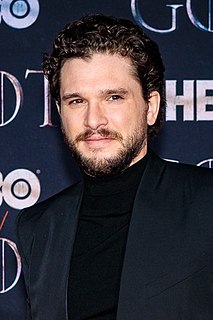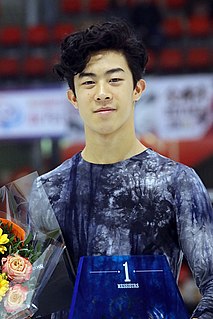A Quote by Terry Gross
I'm first generation American, and my parents were both from Nigeria. And so I always say that I'm literally an African American. So my last name is Famuyiwa, it's different. And so that was a part of my experience from people not being able to pronounce it to not sort of having sort of a shared, common history with a lot of the kids that I was growing up with because my parents were from Africa.
Related Quotes
Something else was different when we were young: our parents were outdoors. I’m not saying they were joining health clubs and things of that sort, but they were out of the house, out on the porch, talking to neighbors. As far as physical fitness goes, today’s kids are the sorriest generation in the history of the United States. Their parents may be out jogging, but the kids just aren’t outside.
My parents both renounced their material lives and were living as monks at an ashram in L.A. when they met each other. So we were always raised in this environment and when we moved to the ashram in Florida it was just like, "Oh, wow, now all of a sudden there's more people like us," because we were growing up in the middle of Texas with our parents, always being the weirdos.
My parents were pretty open about a lot of things, especially my mom. And any kind of little crazy thing I was into, she was very supportive of. You know, whether it was BMX bike racing or being in the Boy Scouts or surfing or anything else, she always seemed to sort of support it. And I think it's because she was an immigrant and that idea of sort of having her kids be able to have access to their dreams and whatever they wanted to follow was very important to her.
My parents didn't have a lot of money when I was growing up. We were comfortable, but I didn't go to Oxbridge, and yet every American interviewer I get says to me, 'You're related to Charles II! Your grandfather was a baronet!' And it's infuriating, because that is a part of my history, but you're trying to turn me into a posh boy, and I'm not.
We know that there were so many Japanese American soldiers in World War II who were fighting in Europe despite the fact that their families, their parents were back home in American prison camps. It's savagely ironic that between themselves and the African-American soldiers, who were also segregated and didn't see the fruition of the work the culminated in the Civil Rights Act until the '60s, that these American heroes and their stories are not well known; and the fact that the 442nd/100th became the most decorated unit in U.S. history.
In Sweden, I went to an English school, where there was a mishmash of people from all over the world. Some were diplomatic kids with a lot of money, some were ghetto kids who came up from the suburbs, and I grew up in between. There's a community of second generation immigrants, and I became part of that because I had an American father.
Happiness is not like we were walking around fingering razor blades or anything like that. But it just sort of seems as if - we sort of knew how happy our parents were, and we would compare our lives with our parents and see that, at least on the surface or according to the criteria that the culture lays down for a successful, happy life, we were actually doing better than a lot of them were.
I think there's always an expectation when you're a first generation, especially a first-generation Nigerian, of sort of being a doctor or a lawyer or an engineer. And so, you know, sort of my initial pursuits into the arts and that I was going to pursue film as a career didn't confuse them, but it was definitely something that they were scared about.
I would say basically the commonplace observation that kids aren't going to earn as much as their parents is now is a coin flip at this point. Are you going to do better than your parents? It's a 50-50 chance, whereas if you were born in the 1940s or 1950s, you had more than a 90 percent chance you were going to do better than your parents. So basically almost a guarantee for most kids that you were going to achieve the American Dream of doing better than your parents did. Today, that's certainly no longer the case.
There were people who voted for Obama simply because he was the first African-American. We had a lot of people that would not have voted for Obama but who did because they really hoped that the nation, making the statement electing an African-American president, would prove once and for all that this is not a racist nation. I believe that there were all kinds of people that voted for Obama with that hope. That was the reason. Everything else was irrelevant to them.






























